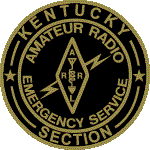|
Home
Amateur Exams
Commercial Exams
BVE Group
Links
Repeater Info
RF Safety
RADIATION PROBE
Skywarn Info
Title IV-Spam
UK Wildcat Page
About KN4S
Session Info



| |
TITLE IV--SPAMMING
SEC. 301. REQUIREMENTS RELATING TO
TRANSMISSIONS OF COMMERCIAL ELECTRONIC MAIL.
(a) INFORMATION TO BE
INCLUDED IN TRANSMISSIONS--
(1) IN GENERAL-- A person who
transmits a commercial electronic mail message shall cause to appear in
each such electronic mail message the information specified in paragraph
(4). Unsolicited (2) Commercial E-MAIL is not acceptable as a method of
advertising.
(2) UNSOLICITED-- A person who
transmits a commercial electronic mail message shall only do so if the
recipient and the sender (4) have a prior relationship.
(3) PRIOR RELATIONSHIP-- A prior
relationship is, but is not limited to, a business relationship such as
ordering a product, joining a mailings list, etc....
(4) COVERED INFORMATION-- The
following information shall appear at the end of the body of all commercial
electronic mail message under paragraph (1):
(A) The
name, physical address, electronic mail address, and telephone number of
the person who initiates transmission of the message.
(B) The
name, physical address, electronic mail address, and telephone number of
the person who created the content of the message, if different from the
information under subparagraph (A).
(C) A
statement that further transmissions of commercial electronic mail to the
recipient by the person who initiates transmission of the message may be
stopped at no cost to the recipient by sending a reply to the originating
electronic mail address with the word `remove' in the subject line.
(b) ROUTING INFORMATION-- All Internet routing
information contained within or accompanying an electronic mail message
described in subsection (a) must be accurate, valid according to the
prevailing standards for Internet protocols, and accurately reflect message
routing.
(c) EFFECTIVE DATE-- The requirements in this section
shall take effect 30 days after the date of enactment of this Act.
SEC. 302. CIVIL OVERSIGHT OF
COMMERCIAL ELECTRONIC MAIL.
(a)
TRANSMISSIONS--
(1) IN GENERAL-- Upon receipt of
electronic mail in violation of a provision of section 301 or 305, the
recipient--
(A) may
conduct an investigation to determine whether or not the electronic mail
was transmitted in violation of such provision; and
(B) if
the recipient determines that the electronic mail was transmitted in
violation of such provision, may--
(i) commence in a district court of the United States a civil action to
recover a civil penalty in an amount not to exceed $500 against the person
initiating the transmission;
(ii) commence an action in a district court of the United States a civil
action to seek injunctive relief; or
(iii) proceed under any combination of the authorities set forth in clauses
(I) and (ii).
(2) DEADLINE-- The Recipient may
not take action under paragraph (1)(B) with respect to a transmission of
electronic mail more than 2 years after the date of the transmission.
SEC. 303. ACTIONS BY STATES.
(a) IN GENERAL--
Whenever the attorney general of a State has reason to believe that the
interests of the residents of the State have been or are being threatened
or adversely affected because any person is engaging in a pattern or
practice of the transmission of electronic mail in violation of a provision
of section 301 or 305, the State, as parens patriae, may bring a civil
action on behalf of its residents to enjoin such transmission, to enforce
compliance with such provision, to obtain damages or other compensation on
behalf of its residents, or to obtain such further and other relief as the
court considers appropriate.
(2) RIGHTS OF RECIPIENT-- On
receiving a notice with respect to a civil action under paragraph (1), the
Recipient shall have the right--
(A) to
intervene in the action;
(B) upon
so intervening, to be heard in all matters arising therein; and
(C) to
file petitions for appeal.
(c) ACTIONS BY RECIPIENT-- Whenever a civil action has
been instituted by or on behalf of the Recipient for violation of a
provision of section 301 or 305, no State may, during the pendency of such
action, institute a civil action under this section against any defendant
named in the complaint in such action for violation of any provision as
alleged in the complaint.
(d) CONSTRUCTION-- For purposes of bringing a civil
action under subsection (a), nothing in this section shall prevent an
attorney general from exercising the powers conferred on the attorney
general by the laws of the State concerned to conduct investigations or to
administer oaths or affirmations or to compel the attendance of witnesses
or the production of documentary or other evidence.
(e) VENUE; SERVICE OF PROCESS-- Any civil action brought
under subsection (a) in a district court of the United States may be
brought in the district in which the defendant is found, is an inhabitant,
or transacts business or wherever venue is proper under section 1391 of
title 28, United States Code. Process in such an action may be served in
any district in which the defendant is an inhabitant or in which the
defendant may be found.
(f) ACTIONS BY OTHER STATE OFFICIALS-- Nothing in this
section may be construed to prohibit an authorized State official from
proceeding in State court on the basis of an alleged violation of any civil
or criminal statute of the State concerned.
(g) DEFINITIONS- In this section:
(1) ATTORNEY GENERAL-- The term
`attorney general' means the chief legal officer of a State.
(2) STATE-- The term `State'
means any State of the United States, the District of Columbia, Puerto
Rico, Guam, American Samoa, the United States Virgin Islands, the
Commonwealth of the Northern Mariana Islands, the Republic of the Marshall
Islands, the Federated States of Micronesia, the Republic of Palau, and any
possession of the United States.
SEC. 304. INTERACTIVE COMPUTER
SERVICE PROVIDERS.
(a) EXEMPTION FOR
CERTAIN TRANSMISSIONS--
(1) EXEMPTION-- Section 301 or
305 shall not apply to a transmission of electronic mail by an interactive
computer service provider unless--
(A) the
provider initiates the transmission; or
(B) the
transmission is not made to its own customers.
(2) CONSTRUCTION-- Nothing in
this subsection may be construed to require an interactive computer service
provider to transmit or otherwise deliver any electronic mail message.
(b) ACTIONS BY INTERACTIVE COMPUTER SERVICE PROVIDERS--
(1) IN GENERAL-- In addition to
any other remedies available under any other provision of law, any
interactive computer service provider adversely affected by a violation of
a provision of section 301 or 305 may, within 1 year after discovery of the
violation, bring a civil action in a district court of the United States
against a person who violates such provision. Such an action may be brought
to enjoin the violation, to enforce compliance with such provision, to
obtain damages, or to obtain such further and other relief as the court
considers appropriate.
(2) DAMAGES--
(A) IN
GENERAL-- The amount of damages in an action under this subsection for a
violation specified in paragraph (1) may not exceed $500 per violation.
(B)
RELATIONSHIP TO OTHER DAMAGES-- Damages awarded for a violation under this
subsection are in addition to any other damages awardable for the violation
under any other provision of law.
(C) COST
AND FEES-- The court may, in issuing any final order in any action brought
under paragraph (1), award costs of suit, reasonable costs of obtaining
service of process, reasonable attorney fees, and expert witness fees for
the prevailing party.
(3) VENUE; SERVICE OF PROCESS--
Any civil action brought under paragraph (1) in a district court of the
United States may be brought in the district in which the defendant or in
which the interactive computer service provider is located, is an
inhabitant, or transacts business or wherever venue is proper under section
1391 of title 28, United States Code. Process in such an action may be
served in any district in which the defendant is an inhabitant or in which
the defendant may be found.
(c) INTERACTIVE COMPUTER SERVICE PROVIDER DEFINED-- In
this section, the term `interactive computer service provider' has the
meaning given the term `interactive computer service' in section 230(e)(2)
of the Communications Act of 1934 (47 U.S.C. 230(e)(2)).
SEC. 305. RECEIPT OF
TRANSMISSIONS BY PRIVATE PERSONS.
(a) TERMINATION OF
TRANSMISSIONS-- A person who receives from any other person an electronic
mail message requesting the termination of further transmission of
commercial electronic mail shall cease any further transmissions of such
mail to the recipient making the request.
(b) AFFIRMATIVE AUTHORIZATION OF TRANSMISSIONS--
(1) IN GENERAL-- Subject to
paragraph (2), a recipient may authorize another person to initiate
transmissions of solicited commercial electronic mail to the same
recipient.
(2) AVAILABILITY OF
TERMINATION-- A person initiating transmissions of electronic mail under
paragraph (1) shall include, with each transmission of such mail to a
person authorizing the transmission under that paragraph, the information
specified in section 301(a)(2)(C).
(c) CONSTRUCTIVE AUTHORIZATION OF TRANSMISSIONS--
(1) IN GENERAL-- Subject to
paragraphs (2) and (3), a person who secures a good or service from an
offer in a transmission of unsolicited commercial electronic mail shall be
deemed to have authorized the initiation of transmissions of unsolicited
commercial electronic mail from the person who initiated the transmission.
(2) NO AUTHORIZATION FOR
REQUESTS FOR TERMINATION-- An electronic mail request to cease the
initiation of further transmissions of electronic mail under subsection (a)
shall not constitute authorization for the initiation of further electronic
mail under this subsection.
(3) AVAILABILITY OF
TERMINATION-- A person initiating transmissions of electronic mail under
paragraph (1) shall include, with each transmission of such mail to a
person deemed to have authorized the transmission under that paragraph, the
information specified in section 301(a)(2)(C).
(d) EFFECTIVE DATE OF TERMINATION REQUIREMENTS--
Subsections (a), (b)(2), and (c)(3) shall take effect 30 days after the
date of enactment of this Act.
SEC. 306. DEFINITIONS.
In this title:
(1) COMMERCIAL ELECTRONIC MAIL--
The term `commercial electronic mail' means any electronic mail that--
(A)
contains an advertisement for the sale of a product or service;
(B)
contains a solicitation for the use of a telephone number, the use of which
connects the user to a person or service that advertises the sale of or
sells a product or service; or
(C)
promotes the use of or contains a list of one or more Internet sites that
contain an advertisement referred to in subparagraph (A) or a solicitation
referred to in subparagraph (B).
(2) RECIPIENT-- The term
`Recipient' means the individual and/or company receiving the commercial
electronic mailing.
(3) The term `initiate the
transmission' in the case of an electronic mail message means to originate
the electronic mail message, and does not encompass any intervening
interactive computer service whose facilities may have been used to relay,
handle, or otherwise retransmit the electronic mail message, unless the
intervening interactive computer service provider knowingly and
intentionally retransmits any electronic mail in violation of section 301
or 305.
Back
to Top | Back
to Main Page
|
 Bluegrass Volunteer Examiners
Bluegrass Volunteer Examiners
